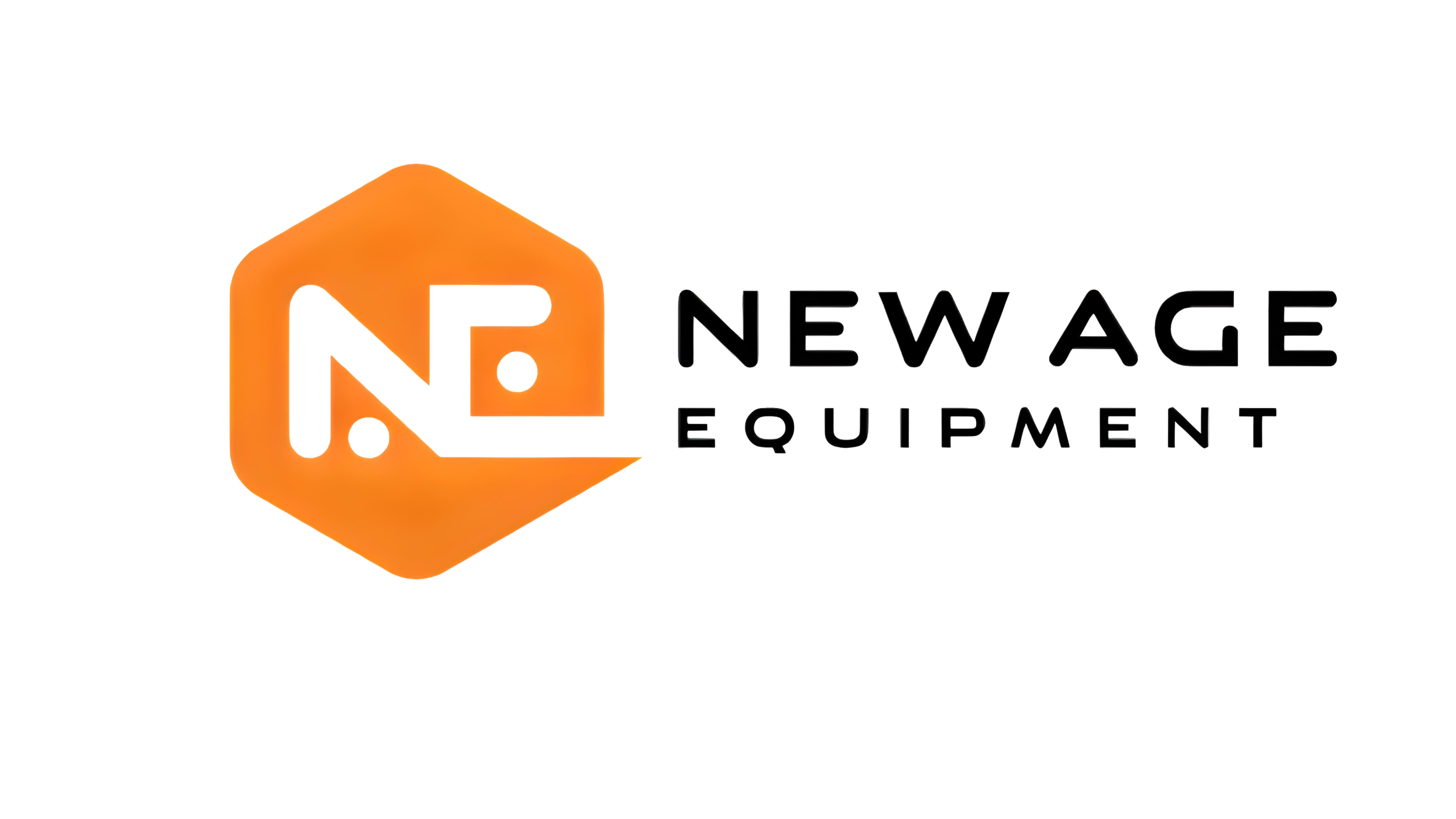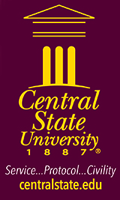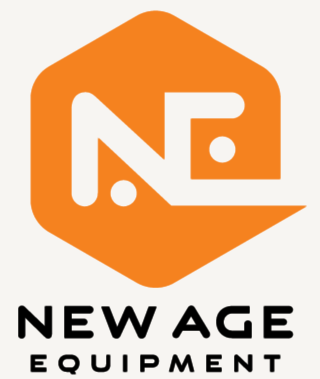A Lot of Things are Happening at Cedarville University!
- Over One Million Downloads Worldwide
- MBA Certificates Provide Fast Path to Professional Growth
- New Food Options at Cedarville University include Chick-fil-A, Tossed
- Soaring Scores: Engineering Team Finishes Third in the Nation
- Hiking and Helping: Student Business Produces Outdoor Gear
- Industrial Deesign Student Creates "Good for Your Feet" Shoes
- Autonomous Golf Cart Engineered by Students
- New Accelerator Offers Students an Entrepreneurial Edge
- A New Milestone: Cedarville University to award its 500th Graduate Degree
Over One Million Downloads Worldwide
The scholarly and creative work of Cedarville University’s students, faculty and staff is having an impact around the world in more than 200 countries through Cedarville’s institutional repository, DigitalCommons@Cedarville. On February 6, a user in the Philippines completed the one-millionth download, which was the article “The Effectiveness of Music Therapy in the Pediatric Population.”
Although the primary purpose of the repository since its inception in 2012 has been to collect and disseminate this scholarly and creative activity, it also serves as the archive for the historical record of the university.
"This milestone shows how Cedarville University is having a global impact by taking research and academic output grounded in a biblical worldview to a worldwide audience,” said Josh Michael, dean of library services and assistant professor of library science. “It signifies how technology can be used to extend the reach of faculty and student scholarship from a local audience to a global one.”
“Our repository compares well with repositories in much larger institutions,” said Greg Martin, Digital Commons director and associate professor of library science. “We have over 36,000 items in the Digital Commons. Our vendor often uses us as an example when other schools are starting repositories.”
Martin emphasized how the repository makes people aware of what Cedarville is accomplishing in the scholarly realm. “The attention our repository is receiving speaks well for the quality of our university,” he said. “Prospective students can view this and want to be a part of what’s happening at Cedarville.”
Find out the full range of publications available at digitalcommons.cedarville.edu.
MBA Certificates Provide Fast Path to Professional Growth
Professionals interested in earning a certificate in cybersecurity management, healthcare administration or operations management now have an affordable option at Cedarville University. The university’s school of business administration has been approved by the Ohio Board of Regents and the Higher Learning Commission to offer these online graduate certificates beginning in the spring 2020 semester.
Cedarville’s board of trustees approved the certificates in January, and the Ohio Board of Regents and the Higher Learning Commission approved the certificates a month later.
"External review by our accrediting bodies validated the benefit of these certificates, ensuring that Cedarville University is delivering on its promises of academic quality and vocational distinction, and our graduate students are receiving a valuable credential," said Dr. Janice Supplee, dean of The Graduate School at Cedarville University.
Each certificate can be completed in seven to eight months, according to Dr. John Delano, associate dean of business administration graduate studies. “These certificates provide the training needed for an individual to retool for a potentially different career path or to further advance in their current career without needing an entire degree,” he said.
The cybersecurity management certificate will teach students security laws and policies. They will learn how to identify security risks, develop security solutions and design security infrastructures that mitigate threats. The courses will address both the technical and managerial aspects of protecting an organization's information resources.
An M.B.A. certificate in healthcare administration will focus on the management of healthcare delivery. Some of the topics addressed will include how to make legal and ethical healthcare decisions, how to make data-driven decisions and how to develop a vision and strategy for improving healthcare.
Focusing on the quantitative side of the managerial decision-making process, the operations management certificate will enable students to perform decision analysis for managing processes, projects and supply chains.
These new certificates continue to expand the opportunities available through Cedarville’s online M.B.A. program. Students interested in a full degree can choose from five tracks including, business analytics, cybersecurity, healthcare administration, innovation and entrepreneurship and operations management.
New Food Options at Cedarville University include Chick-fil-A, Tossed
Students at Cedarville University will have additional food options on campus when the university opens a new dining center that includes Chick-fil-A and Tossed restaurants. The new food options will be located in a 15,000-square-foot, $7 million facility overlooking Cedar Lake, and next to Centennial Library. The new dining center is expected to open in 2020.
The eatery will help reduce growing traffic concerns during meal times at Cedarville University, which has grown to nearly 4,200 students. Currently, Cedarville offers two dining options to students--its large dining hall in the Stevens Student Center and Stinger’s, a large snack shop that features sandwiches, salads and wraps.
The new dining facility will add a full-service Chick-fil-A and Tossed restaurant to students’ meal options. Tossed is a design-your-own salads, hot bowls, wraps and personal pan pizza restaurant. Together, the restaurants will provide up to 300 seats in a two-level facility that overlooks Cedar Lake. The new restaurants will be open to the public.
Soaring Scores: Engineering Team Finishes Third in the Nation
 The Cedarville University Aero Design team took to the skies in Fort Worth, Texas, and placed third in the nation and seventh internationally in the 2019 Society of Automotive Engineers (SAE) Aero Design East competition. The event was held March 8-10, 2019.
The Cedarville University Aero Design team took to the skies in Fort Worth, Texas, and placed third in the nation and seventh internationally in the 2019 Society of Automotive Engineers (SAE) Aero Design East competition. The event was held March 8-10, 2019.
Cedarville placed ahead of more recognizable U.S. universities, including the University of Michigan and the University of Cincinnati.
According to the team’s captain, Victoria Holmes, the team experienced success on many levels. "The design process and development of our aircraft gave our team a real-life scenario in which we faced challenges that prepared us for the engineering workforce we will all soon be entering,” said Holmes, of Coal Grove, Ohio. “Overall, the strength of our team came from each individual’s God-given gifts and talents being utilized. I am so proud of my teammates for their dedication and tireless hours they put in to making our competition project a success!"
The multidisciplinary team consisted of students from mechanical, electrical and computer engineering under the advisement of Cedarville professors Dr. Tim Norman and Dr. Clint Kohl and Dr. Keith Numbers, from Wright Patterson Air Force Base (WPAFB).
Last year Cedarville finished fourth overall and was the third U.S. team behind Georgia Tech and University of Cincinnati.
This year, the competition had a new set of rules, the first year of a three-year battle to overcome the obstacles put before them by the SAE competition organizers.
There were 21 competitors in the advanced class, including some of the best U.S. schools in aeronautical engineering, including Georgia Tech and “all star” teams from countries like Brazil, Canada, Poland and India.
Scoring for the competition consisted of three parts: a report submitted in February, a presentation the day before flying competition and a performance score from flying.
“I was extremely happy with the way the Cedarville team worked together to solve technically challenging problems to compete in an extraordinarily tough competition,” said Norman. “Their success builds on the reputation of our program and puts us in a good position for competition next year.”
Hiking and Helping: Student Business Produces Outdoor Gear
 He saw a need and made a business to fulfill it. Gabe Chester, a senior global business and marketing major from Fairfield, Ohio, realized there were no ultralight, high-quality economical camping sleeping bags available in the marketplace, so he began making and selling his own.
He saw a need and made a business to fulfill it. Gabe Chester, a senior global business and marketing major from Fairfield, Ohio, realized there were no ultralight, high-quality economical camping sleeping bags available in the marketplace, so he began making and selling his own.
Today, this fulfilled need has turned into Chester Outdoor Gear, which provides consumers with quality outdoor gear for the avid, everyday adventurer.
Chester is an avid backpacker, Eagle Scout and outdoorsman. He makes the majority of his company’s products himself to ensure the highest quality, and makes sure each item is field tested to the proper conditions.
As a student at Cedarville University, Chester started this business to provide the most durable outdoor gear for those who could not afford high-priced gear. Chester Outdoor Gear sells sleeping bags, canvas phone/passport cases, grommet socks (socks with a built in grommet to hang over the fire or from a backpack), wool-knit hats and logo patches.
“When I was looking to buy a sleeping bag for myself, I could not find any quality and affordable options,” said Chester. “I stumbled on materials that I could use to make one for a much cheaper cost, so I hand sewed the first one. It took me 13 hours, but it turned out so well that I decided to purchase a sewing machine and make more bags.”
Chester, now in his senior year at Cedarville, just hired an employee to help with the sewing. Chester, however, still plans on keeping a close eye on the quality of each product he sells.
All of Chester’s sleeping bags weigh 1 1/2 pounds. They are lightweight because, as Chester said, “when hiking, every ounce that you carry counts.” Each bag is made with down (duck feathers) and keeps a person warm in temperatures as low as 40 degrees.
“Our company realizes that people are far more important than profits,” said Chester. “We aim to help get everyone outdoors. A business should always be focused on bettering the lives of their customers.”
After graduation, Chester will work for Wright-Patterson Air Force Base in logistics and military sales. He plans to run Chester Outdoor Gear on the side and would someday like it to become his primary job. He wants to eventually morph it into a leadership roadtripping camp, for which he would provide camping gear for youth. His plan includes campers taking a road trip, stopping at national parks in the western United States and learning leadership principles.
Industrial Deesign Student Creates "Good for Your Feet" Shoes

Sitler’s project was inspired by the work of Nike designer Tinker Hatfield. Hatfield noticed how basketball players often end up with deformed, unhealthy feet because of their shoes and worked to develop self-tightening laces to give their feet more room to move naturally. Sitler is taking this idea further for runners by loosening up the rest of the shoe.
 Her current prototype has no laces and slips on easily. It has a strap around the tallest part of the foot to keep the foot from sliding forward and a loop around the largest toe as security for the front of the foot. The design allows freedom of movement while safely securing the foot.
Her current prototype has no laces and slips on easily. It has a strap around the tallest part of the foot to keep the foot from sliding forward and a loop around the largest toe as security for the front of the foot. The design allows freedom of movement while safely securing the foot.
Sitler just completed her third prototype and is excited about receiving feedback from product testers such as Randy Kreill.
Kreill, from Beavercreek, Ohio, is a long-distance runner who recently completed his 10th 100-mile foot race in Tennessee. After beating cancer nearly 15 years ago, he was determined to find real-life answers. He found what he was looking for in ultra-running. He has completed more than 50 ultra-marathons, which is any race over 26 miles, in minimalist shoes. He has tested ideas for Xero Shoes, a minimalist shoe company in Boulder, Colorado, as well as for Sitler.
“Hannah’s shoes are very creative,” said Kreill. “She has brought designs with creative twists that I have never seen before. I can wear them for running and also hours at a time for casual use. Her focus on a flat design from heel to toe, thin outsoles, wide toe box areas and detailed and functional features is spot on and very needed in the industry. So many people, hundreds of millions perhaps, are suffering from the effects of being over shod.”
“The ICC makes you think of things from an end-goal perspective,” said Sitler. “They really changed the way I thought about shoes. I was taught to think critically and look past convention to see from an innovative perspective.”
“Hannah’s never been shy about bringing her passion for sustainability and total wellness into her work,” said Gabe Pyle, instruction specialist and program coordinator for the ICC. “From the start of her time at the ICC, she's been keenly aware of the potential negative impact an industrial designer could have on people and the planet. She's worked hard to turn that negative impact into a positive impact. She's been able to direct this energy into designing for healthier foot movement during demanding maneuvers in athletic activity. From the feedback she's gotten so far, she's been right on target.”
After graduation, Sitler hopes to find an internship with an innovative shoe company, such as Xero Shoes, that cares about foot health.
Autonomous Golf Cart Engineered by Students
Golfers often work on their drive. But a group of Cedarville University computer engineering students is taking that focus to a whole new level.
 Three Cedarville computer engineering students — Nathan Jessurun (Charles Town, West Virginia), Ryan Gordon (Beavercreek, Ohio) and Michael Hayes (Redmond, Washington) — are teaming up with Alex Cline (Cedarville, Ohio), an electrical engineering student, to design and build an autonomous golf cart. The students will test drive the golf cart in April.
Three Cedarville computer engineering students — Nathan Jessurun (Charles Town, West Virginia), Ryan Gordon (Beavercreek, Ohio) and Michael Hayes (Redmond, Washington) — are teaming up with Alex Cline (Cedarville, Ohio), an electrical engineering student, to design and build an autonomous golf cart. The students will test drive the golf cart in April.
“We want our students to take part in the innovative ventures going on in the engineering world today,” said Danielle Fredette, Ph.D., assistant professor of electrical engineering and faculty advisor to the project. “Big projects like this are a good fit for our students’ capabilities.”
A golf cart is a cost-effective vehicle to use to test and develop autonomous driving technology. The project will cost approximately $3,500, $2,000 to purchase a used golf cart cost and $1,500 for the software and hardware to make the cart driverless. Clint Kohl, Ph.D., professor of computer engineering, and Gerry Brown, Ph.D., associate professor of electrical engineering, have helped students with the design and development of this project.
There are three main problems the engineering students are trying to solve: how to make the golf cart go, stop and steer autonomously.
To resolve these challenges, the Cedarville team added new electrical hardware elements to allow the original car motor and its mechanical steering and braking systems to interface with a control computer. The computer gets data from a GPS unit and a RADAR unit, allowing the car to self localize, sense and navigate through its environment.
The GPS system on the roof guides the golf cart through a preprogrammed set of GPS coordinates. The sensors will signal the cart when it is about to bump into something, so it steers or brakes. These sensors allow the computer to re-route in the case of an obstacle and keep the cart moving to the next GPS coordinate. The dynamic routing functionality will be more fully implemented by next year’s team.
The external sensors on the cart function effectively in fog or rain, according to Fredette, and the brake can still be used manually by the passengers in the cart.
“Drawing from skills and knowledge we learned throughout all of our previous years at Cedarville, my classmates and I have been able to design, implement and test a cutting-edge project that mimics rather closely the projects that we will be working on once we graduate and move into the real world,” said Hayes, team leader.
“Most engineering careers require hours of debugging, team meetings, discussions, ordering parts, communicating with others, managing hours and many other critical skills that this project has allowed us to experience in advance.”
New Accelerator Offers Students an Entrepreneurial Edge
Beginning with fall semester 2019, Cedarville University’s School of Business Administration will offer an entrepreneurship accelerator program for students across all university disciplines. The accelerator will enable students to launch independent startup companies as well as provide skills and experience to lead a startup function in existing companies by creating new products or pursuing new markets.
“Business is changing rapidly, and many of the changes that are so disruptive are amenable by entrepreneurial solutions,” explained Jeffrey Haymond, dean of the school of business administration and professor of economics. “This is a time for a Christian university to take the lead at creating entrepreneurial students — students who are ready to handle the ambiguous and dynamic market economy.”
The accelerator focuses on learning by doing. Students can earn college credit while founding, funding and scaling a startup company. Company-sponsored, on-campus internships and projects will also be available for interested students.
As part of the accelerator, pitch competitions, similar to ABC’s “Shark Tank,” will be held at Cedarville. Judges will include venture capitalists, private equity leaders, angel investors and current business owners. These will not be mock scenarios, but real pitches where pitch competition guests who are impact investors will invest capital in the best student founded startup companies.
A fall and spring entrepreneurship practicum will also start with the launch of the entrepreneurship accelerator. Any Cedarville student may enroll in this one-to-three-credit course. Sponsoring companies have selected challenging projects that require marketable solutions. Students will work in project teams to propose and deliver solutions to be delivered in the marketplace through the sponsoring companies.
The accelerator will also create a new Cedarville role: entrepreneur-in-residence. This position will allow current business owners, venture capitalists, angels and venture attorneys to provide campus hours to mentor Cedarville students and to contribute in classes along with faculty within the entrepreneurship accelerator.
“Students who want to be entrepreneurs will ultimately create our future in the marketplace,” stated Richard Blanc, director of the entrepreneurship accelerator program. “The marketplace provides critical resources to churches, schools, communities, nonprofit ministries and families, and at the center of the marketplace is the startup economy. We want every Cedarville student to have the opportunity to have influence and prosper as they use their influence to advance the cause of Christ.”
A New Milestone: Cedarville University to award its 500th Graduate Degree
Cedarville University will award its 500th graduate degree during spring commencement May 4 at 10 a.m. in the Doden Field House.
“Five hundred is a significant number — a milestone in Cedarville’s journey,” said Dr. Janice Supplee, dean of graduate studies and vice president for marketing and communications. “That represents a significant number of people who have been equipped for vocational distinction and godly service through a graduate experience at Cedarville.”
This commencement will also celebrate the first graduating class of Master of Divinity (M.Div.) students.
Cedarville’s first graduate program began in 2002 with a Master of Education. Now, the university offers Doctor of Pharmacy, Master of Business Administration (MBA), Master of Ministry, M.Div. and Master of Science in Nursing (M.S.N.) degrees as well as several graduate certificates. The graduate school currently serves nearly 500 residential and online students.
Both the MBA and M.S.N. offer specialized training options as part of their graduate degree programs. MBA students can complete tracks in business analytics, cybersecurity management, innovation and entrepreneurship, healthcare administration and operations management. M.S.N. students can earn degrees with a global public health nursing, family nurse practitioner or nurse educator emphasis. Two new focus areas, leadership and pediatric nurse practitioner, will be added in fall 2019.
The Graduate School at Cedarville University is also innovating fresh approaches to earning a master’s degree. Beginning spring 2019, the Advanced M.Div. program started giving students a faster and even more affordable path into ministry by counting undergraduate credit hours in Bible, theology and ministry toward the required 61 credit hours. This Advanced M.Div. is one of 20 unique pathways to streamline students’ entrance into Cedarville’s graduate programs.
Looking ahead, Cedarville University plans to add other new graduate programs in the fields of healthcare and ministry, according to Supplee. These programs are pending the approval of the Higher Learning Commission.
For more information about Cedarville graduate programs, visit cedarville.edu/graduate.













